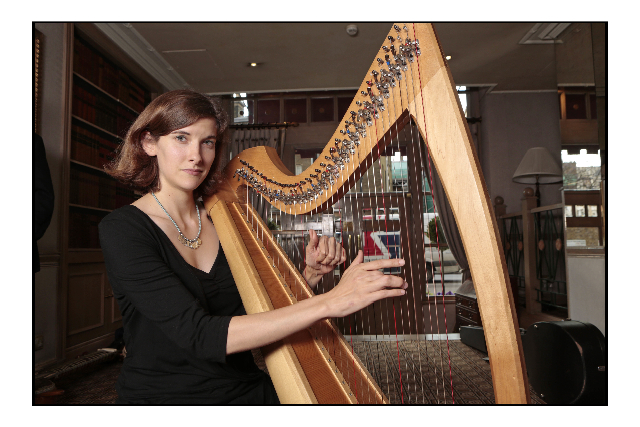September 2012
Steph West, who played her harp in the British Paraorchestra at the Paralympic Closing Ceremony, tells us about being part of this unique experience
It all started at a TED talk. Steph West had seen a presentation on the Paraorchestra run by TED, the influential organisation aimed at spreading the word about technology, entertainment and design. It crossed her mind that as a harpist with macrodactyly, (a deformity of the hand requiring several corrective surgeries and ultimately the amputation of her middle finger) she might be eligible to join the Paraorchestra.
“I was hesitant at first but eventually I decided to email the Paraorchestra and they asked me to send a video of myself playing. I thought I wouldn’t be ‘disabled enough’ or not good enough but they emailed back almost immediately asking me to join them!”
The British Paraorchestra, dubbed ‘the orchestra of impossible genius’, is the UK’s first orchestra featuring disabled musicians. Founded by renowned conductor Charles Hazlewood, whose youngest child has cerebral palsy, it has been well received by the British public – audiences, musicians and their families alike.
“Look what the Paralympics achieved.” says Hazlewood,” It is now possible with anyone with any kind of disability to do sport. Music should be and must be in the same place as that.”
Steph is very glad she had plucked up the courage to make contact with the Paraorchestra, “As soon as I met the musicians I knew I was going to be part of something special. It was clearly about personality and attitude and nothing to do with physicality. People were working with what they had. If you have something that marks you as ‘out of the ordinary’, it can be quite lonely but as soon as you are in a space with other people in the same boat, that disappears. Everybody accommodates everyone else’s differences automatically and doesn’t get phased by it. Lyn Levett (fellow Paraorchestra member) put it best: we’re not disabled musicians but musicians with a disability, and any problems can be worked around.”
Steph, who attended St Clement Danes school before going to the University of Birmingham to study for a BMus, took up the harp when she went on to study early music performance. “It was the obvious choice for me, it matches the way I think about music. I first learned with my right hand at the top then about five years in I realised I wouldn’t play fast enough so had to learn to play the other way.”
The Paralympics was tough going: “The dressing room was about a mile away from our entrance to the stadium and, including dress rehearsals and get in/get out, we must have walked at least six miles. Thankfully, we had an excellent backstage team to guide us through such a huge show. Everyone was very excited, we were really touched to play at one of the world’s great celebrations.”
So what’s next for the British Paraorchestra?
“We’ve only been going 6 months and but are starting to sound really good together as a band. We had our debut appearance at Charles Hazlewood’s Orchestra in a Field and have played other gigs including Snape Maltings, Aldeburgh and The Queen Elizabeth Hall. I look forward to what we do next – it’s been incredible and best of all, I’ve made some lovely friends out of it.”
Steph has her own business performing, teaching and making harps
www.stephwest.co.uk, www.featherwoodinstruments.co.uk
Pic of Steph West by Les Wilson at Reubens Hotel

